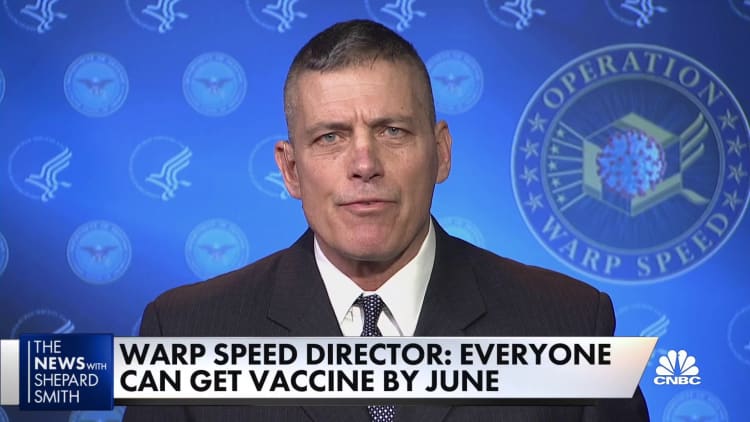The United States reported a record 2,800 deaths caused by Covid-19, the highest single-day death toll ever reported, according to data compiled by Johns Hopkins University.
The U.S. previously reported just over 2,600 deaths on April 15, during the first phase of the Covid-19 surge this spring. Those were clustered mostly in the Northeast and other cities around the country.
The bleak record on Wednesday came with other signs that the nationwide outbreak is growing more severe. The country reported more than 200,000 cases of the virus on Wednesday, the second highest daily number, according to Hopkins data. And more than 100,200 people are currently so sickened by the virus that they require medical attention in hospitals, according to data from the COVID Tracking Project, which is run by journalists at The Atlantic.

However, coronavirus data has become challenging to interpret following the Thanksgiving holiday, as states work to resume normal reporting schedules, so the single-day figures may be at least partially a result of delayed reporting. The trends, though, all point to an outbreak that is growing more severe by the day.
Dr. Robert Redfield, director of the Centers for Disease Control and Prevention, said Wednesday the U.S. is at a "very critical time" with about 90% of hospitals across the country in 'hot zones.'"
"The reality is December and January and February are going to be rough times," Redfield said at an event hosted by the U.S. Chamber of Commerce. "I actually believe they're going to be the most difficult in the public health history of this nation, largely because of the stress that's going to be put on our health-care system."
Many hospitals around the country are already worn out from months of work treating the relentless inflow of Covid patients, along with patients who still require medical attention for other ailments. Dr. Megan Ranney, an emergency physician and director of the Brown-Lifespan Center for Digital Health, said she's hearing from colleagues around the country of situations similar to that of "low-income countries," where medical care must be rationed.
"We're running out of beds, and we're also going to run out of staff," she said. "Our health-care system is full even in normal times, so to add an extra 100,000 patients on top of our existing burden of disease and injury is almost unfathomable."
Some health groups, like the Association of American Medical Colleges, are urging hospitals to prepare to deploy "Crisis Standards of Care," which is typically used in severe situations such as the Sept. 11 terrorist attacks and natural disasters.
With the situation already severe across the country, epidemiologists are holding their breath, watching the daily numbers for signs of what White House coronavirus advisor Dr. Anthony Fauci called a "surge upon a surge" of Covid-19 cases following Thanksgiving.
The CDC on Wednesday urged Americans to postpone their plans to travel for the winter holidays, which could even further exacerbate the outbreak.
"Even if only a small percentage of those travelers were asymptomatically infected, this can translate into hundreds of thousands of additional infections moving from one community to another," Dr. Cindy Friedman, chief of the CDC's travelers health branch, said on a conference call with reporters. "Cases are rising and the safest thing to do is to postpone holiday travel and stay home."
— CNBC's Nate Rattner contributed to this report.



